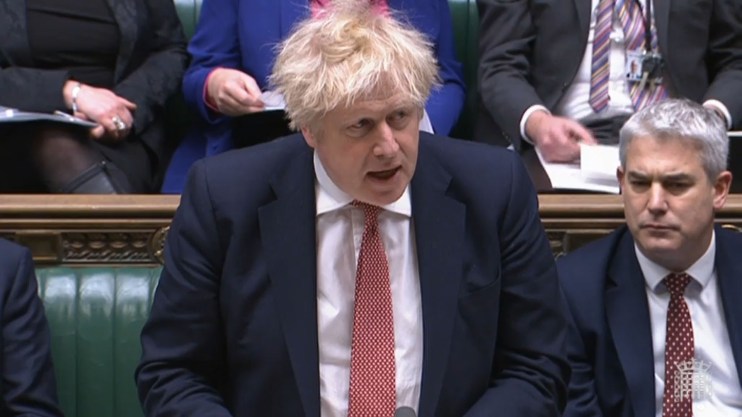Living with Covid: Legal duty to isolate and routine contact tracing both end on Thursday

People who test positive for coronavirus will no longer be legally required to isolate from Thursday, and free universal testing will end in April under Boris Johnson’s plan for “living with Covid”.
The Prime Minister detailed the strategy for England to the Commons late on Monday afternoon after a Cabinet disagreement thought to centre on funding for future surveillance of the virus.
Those who receive a positive Covid-19 test will still be advised to stay at home for at least five days, but will not be obliged to under law under the plans subject to parliamentary approval.
Routine contact tracing will also end on Thursday, as will self-isolation payments and the legal obligation for individuals to tell their employers about their requirement to isolate.
Sick pay and employment support
Changes to statutory sick pay and employment support allowance designed to help people through the coronavirus pandemic will end on March 24.
People aged 75 and over, the immunosuppressed and those living in care homes will be offered another Covid-19 booster vaccine this spring under the plans.
But free universal testing will be massively scaled back from April 1 and will instead be focused on the most vulnerable, with the UK Health Security Agency set to determine the details, while a degree of asymptomatic testing will continue in the most risky settings such as in social care.
But the Department of Health and Social Care will receive no extra money to deliver the testing.
‘Pandemic is not over’
Johnson warned the “pandemic is not over”, with the Queen’s positive test a “reminder this virus has not gone away”.
But he told MPs it was time to “move from Government restrictions to personal responsibility”, with “sufficient levels of immunity to complete the transition” from laws to relying on vaccines and treatments.
“It is time that we got our confidence back. We don’t need laws to compel people to be considerate to others. We can rely on that sense of responsibility towards one another,” Mr Johnson said.
“Let us learn to live with this virus and continue protecting ourselves and others without restricting our freedoms.”
Boris Johnson today
The Government expects a market for lateral flow devices to develop once boxes are no longer available free on the NHS, with individual tests expected to cost a few pounds.
To prevent people stockpiling them before April 1, individuals will only be able to order a box of tests on the NHS every three days instead of every 24 hours.
The Cabinet was due to sign off on the plan on Monday morning, but the meeting was pushed back to the afternoon at the last minute, with the delay understood to centre on Health Secretary Sajid Javid’s demands over how elements would be funded.
Ministers including Education Secretary Nadhim Zahawi, Defence Secretary Ben Wallace and Chief Secretary to the Treasury Simon Clarke had already arrived in No 10 before the postponement.
The chaos surrounding the policy, which should help shore up Mr Johnson’s support on the Tory backbenches by ending the remaining legal restrictions in a nation that has lived under measures for nearly two years, came as the PM’s authority was undermined by the partygate scandal.
But No 10 ultimately said the Cabinet gave the strategy its “unanimous backing” after a virtual meeting in the afternoon.
One of the factors that influenced the decision was data indicating that the Omicron wave had not resulted in any excess deaths, an indication of the protection offered by the vaccines.
Labour leader Sir Keir Starmer said it was “not a plan to live well” with Covid and will leave the nation “vulnerable”.
“As a nation there is no doubt we need to move on from Covid. People need to know their liberties are returning and returning for good.”
Sir Keir Starmer
“But this is a half-baked announcement from a Government paralysed by chaos and incompetence. It is not a plan to live well with Covid.”
Ahead of the announcement, devolved leaders condemned any move to scale back the testing regime that cost nearly £16 billion this financial year.
Welsh First Minister Mark Drakeford said it would be “premature and reckless” to wind back the programme, adding: “Testing has played a pivotal role in breaking chains of transmission and as a surveillance tool helping us detect and respond to emerging variants. It’s essential that this continues.”
Scottish First Minister Nicola Sturgeon said “significant dismantling” of the testing regime would be “inexcusable negligence given ongoing risks”.